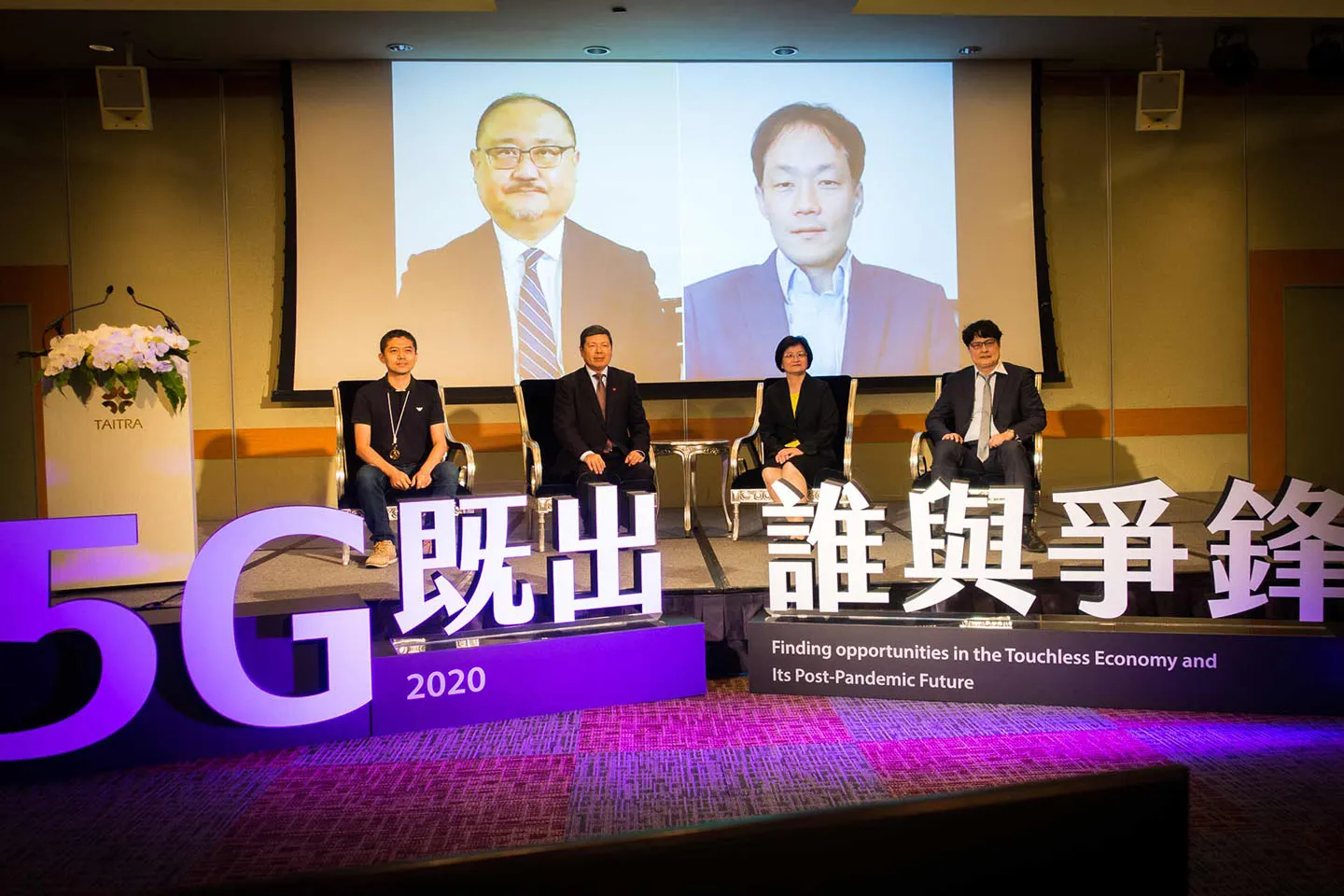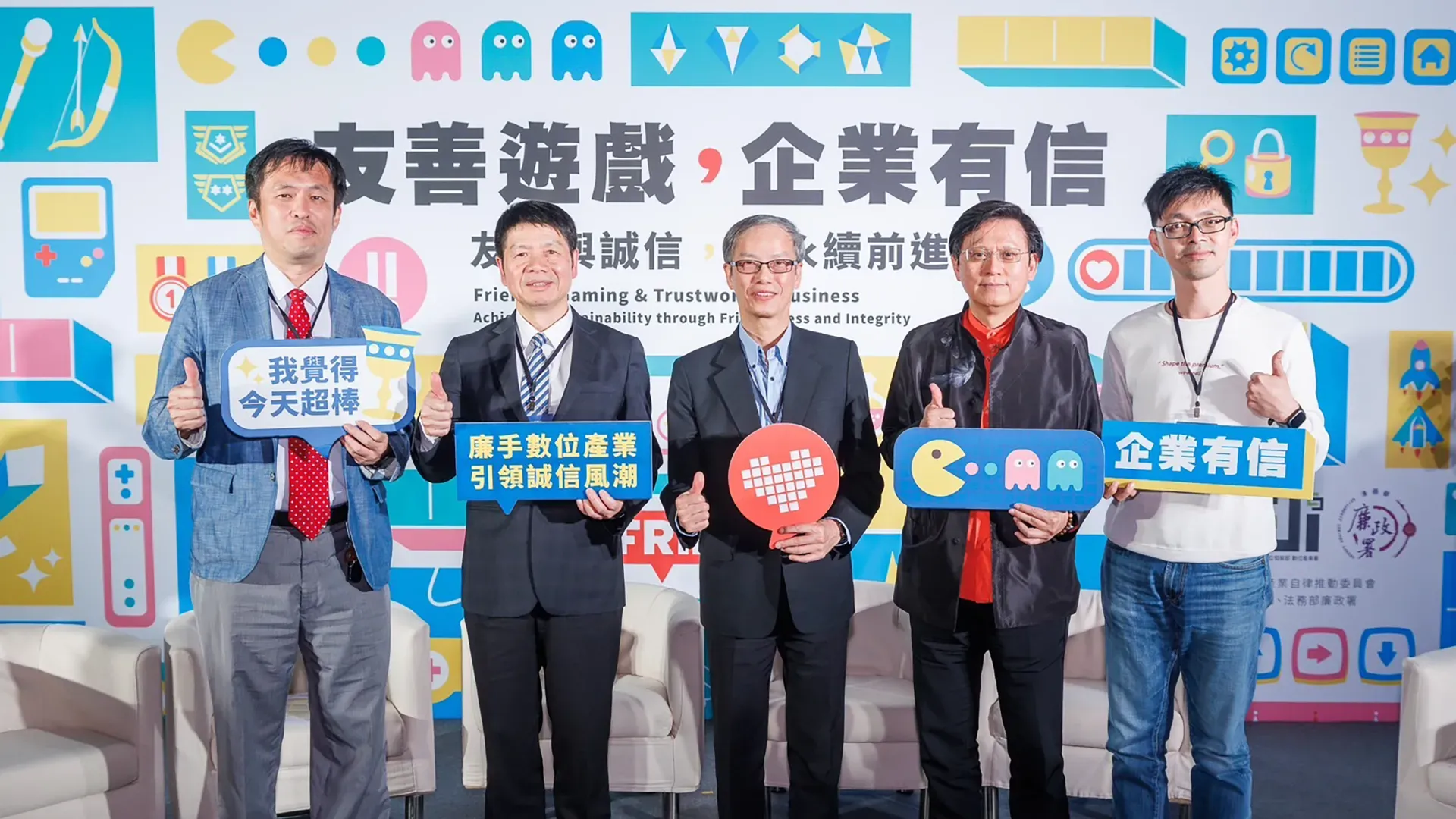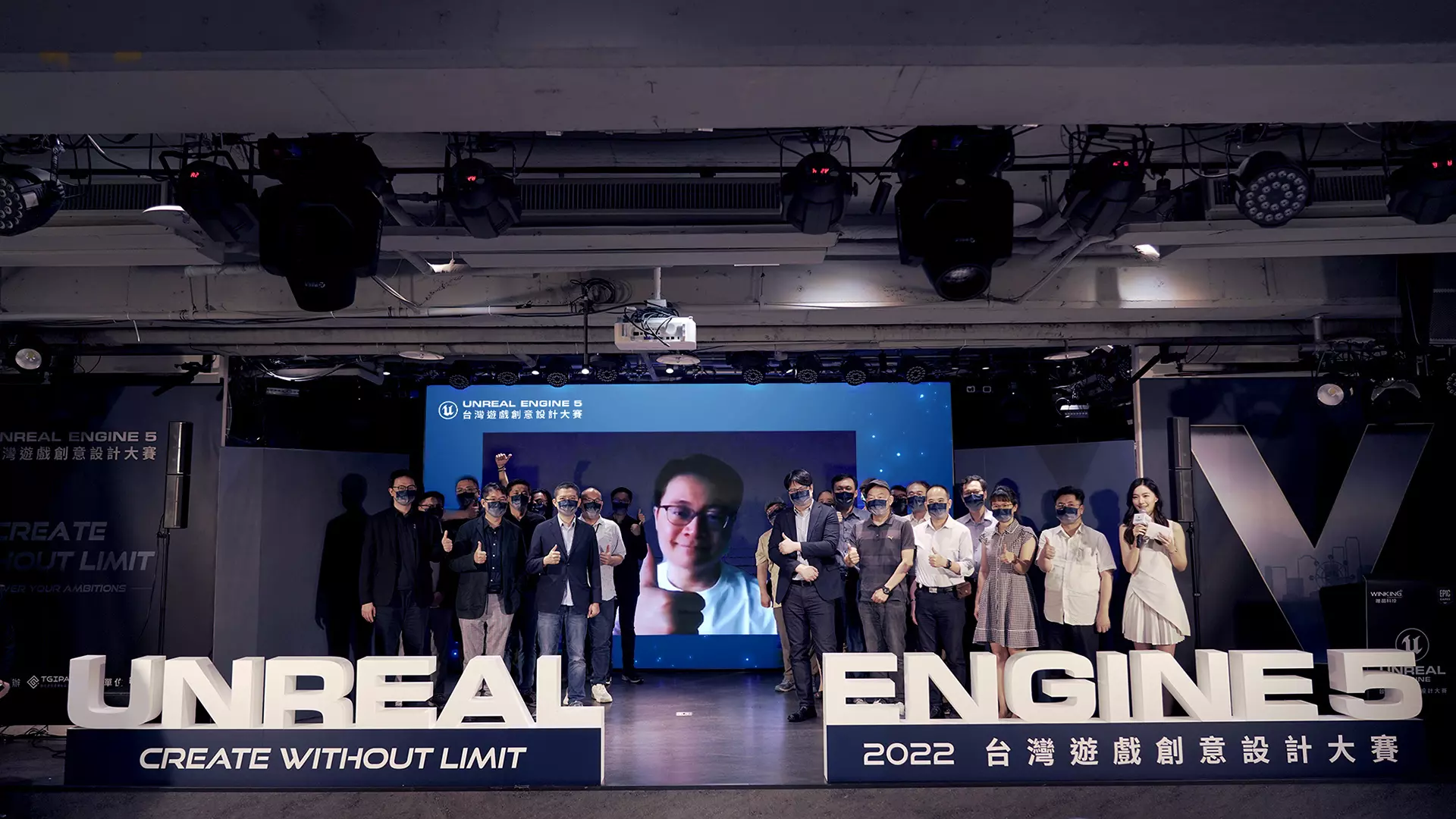
Due to the outbreak of Covid-19 in 2020, each country has imposed entry restrictions and controlled relative industries strictly. Touchless economy, a new global business model has emerged in the pandemic of COVID-19. One of the important technological changes in 2020, which is the development of 5G network service with its high-speed broadband will definitely bring enormous innovation to the game industry.
Winking Studios CEO Johnny Jan was invited to the forum “Finding Opportunities in the Touchless Economy and Its Post-Pandemic Future” as the representative of the developer in the game industry on 3rd July. Joining by the Vice-President of Japan eSports Union (JeSU), Hirokazu Hamamura, who was the former editor of Japan’s largest video game magazine “FAMITSU”; and Kim Eung Won, the representative of Korean largest Telecom, SK Telecom’s brand manager. The three representatives shared the latest news and information on 5G applications in each of their fields and industry.
Since 2003 Jan founded Winking Studios, the team has collaborated with many successful game companies. Winking continually provides outstanding game art outsourcing and game full development services. The games that Winking took part in have released on PC, mobile, Xbox One, Switch, and PS4 currently, and even planning to release on the next-generation console PS5 as well. Jan foresaw the future of the game based on the rich experience in the industry, he then shared his topic: “Next-Generation Games Under High-Speed 5G Network” at the forum.
Jan mainly shared three aspects that will critically affect gaming with the offer of 5G service. First of all, the feature of 5G high-speed and zero-latency makes the game downloading process becoming instant as like user is selecting programs on his or her video streaming platform by only one-click. This can significantly impact how the online game will be designed in the future. Since high-speed transmission provides the packet returning to the server instantly, the game developer can design harder and more complex games.
For online battle games, the high bandwidth of 5G will make a great advance on PVP interaction, increasing more immersive interactions of the community, and balancing the fairness of multiplayer gaming.
What is more, the cloud streaming service will change the business model as well. Platforms such as Google and Microsoft are currently promoting their cloud gaming service. By the advantages of large and fast transmission of the packet, players can play those graphically demanded games on mobile or computer. This also allows developers to establish a player’s behavior database and support the research on developing a better-experienced game.
Last but not least, Jan said that 5G will have a revolutionary impact on the VR field. The high cost of hardware and dizziness experience of better picture quality in the game is the main challenge faced by VR’s mass adoption. Now, in the generation of 5G, VR headset may design into a convenient and light display screen like a set of sunglasses. By using chips to receive realistic images, everyone can own a VR equipment in the future.
The speech of Vice-President of Japan Esports Union (JeSU) Hirokazu Hamamura on the future of e-sport and the speech of Korean SK Telecom brand manager Kim Eung Won on the future of cloud streaming on gaming, interactive entertainment, and AR/VR in Korea’s market have all emphasized the new industry opportunities and business models under the limitation of the pandemic.


